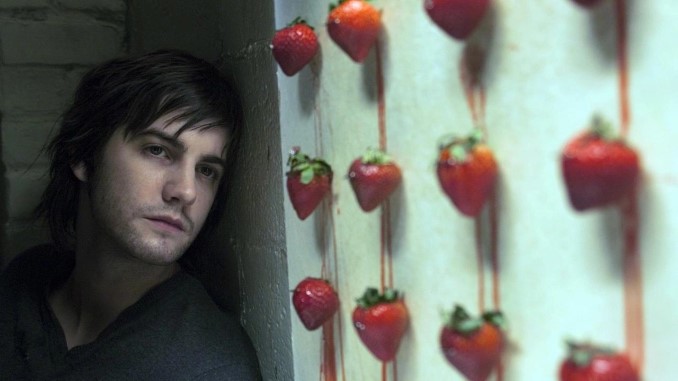Hear Me Out: Across the Universe
Subscriber Exclusive

Hear Me Out is a column dedicated to earnest reevaluations of those cast-off bits of pop-cultural ephemera that deserve a second look. Whether they’re films, TV series, albums, comedy specials, videogames or even cocktails, Hear Me Out is ready to go to bat for any underappreciated subject.
When Julie Taymor’s Across the Universe premiered in 2007, it was a movie without a moment. Audiences of yore that might’ve enjoyed a big studio musical probably wouldn’t have been on board with the more psychedelic, experimental elements. Modern audiences that might’ve been more receptive to the trippy parts didn’t dig musicals. The film failed to fully connect with critics. It didn’t launch its young cast into stardom. Add a nasty, highly publicized behind-the-scenes battle between the director and studio, and Across the Universe took what should’ve been a bulletproof premise—a Beatles jukebox musical—and turned it into an utter box office disaster. But Across The Universe is also one of the most gorgeous, ambitious, entertaining, well-executed disasters in recent cinema history.
In the years since it bombed badly at the box office, Across the Universe has found its cult following (a Cinespia screening at the Hollywood Forever Cemetery this summer was attended in the thousands, according to IndieWire.) Yet the film has never fully gotten its due–Roger Ebert loved it, for the record. Mamma Mia, the ABBA jukebox musical starring Meryl Streep, was built on joyful, romantic silliness and was successful enough to warrant a sequel more than 10 years later. Its Beatles counterpart is plenty silly at times, often achingly romantic, with a soundtrack of songs just as beloved as ABBA’s, if not moreso. But Across The Universe also features race riots, political unrest and the Vietnam War. It’s not exactly hard to digest, but it’s not light fare, either. It’s a whole decade smushed into one movie, and the miracle is how well Taymor was able to pull it off.
One of the movie’s most impressive tricks is the way the plot mirrors the Beatles’ musical evolution throughout the 1960s. With a few exceptions, the soundtrack progresses chronologically through the band’s discography, demonstrating how the group was the decade’s greatest reflection for the cultural (or counter-cultural) revolution. The film follows Jude (Jim Sturgess), a young man from Liverpool who seeks his absent father in the U.S. and instead finds an unexpected family in Max (Joe Anderson) and their eventual Greenwich Village roommates Sadie (Dana Fuchs), Jo-Jo (Martin Luther McCoy) and Prudence (T.V. Caprio). When Jude falls in love with Max’s sister Lucy (Evan Rachel Wood), it’s all innocent early-Beatles love songs (“I’ve Just Seen A Face,” “If I Fell”). As time goes on, relationships deepen, and the gang gets introduced to drugs, the music becomes more complicated—as it did for the Beatles themselves (“I Am The Walrus,” “Being For The Benefit Of Mr. Kite”). Max is drafted, Jude and Lucy retreat into art and activism, and the music reflects the frustration and melancholy of the moment (“Strawberry Fields Forever,” “Happiness Is A Warm Gun”). Across the Universe ends with the hard-won hopefulness that “All You Need Is Love,” performed on a rooftop in tribute to the Beatles’ own last performance. It’s the entire emotional arc of a career and an era in less than two and a half hours.
-

-

-

-

-

-

-

-

-

-

-

-

-

-

-

-

-

-

-

-

-

-

-

-

-

-

-

-

-

-

-

-

-

-

-

-

-

-

-

-








































